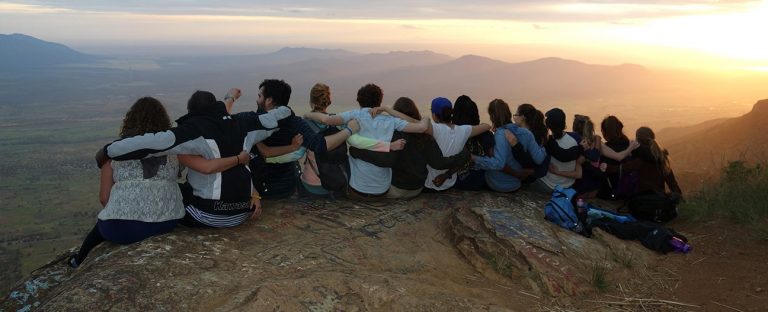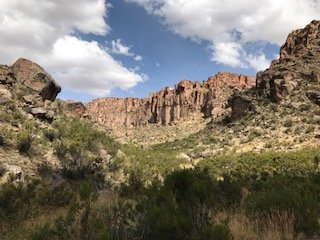Nānā I Ke Kumu by Rebekah Cryderman Lyrics and Song Notes [Rethink Travel Challenge]
- Muhammad Mudassir Afzal
- Mar 30, 2022
- 5 min read
nānā i ke kumu by Rebekah Cryderman is an original song written for Operation Groundswell’s Rethink Travel Challenge 2022.
Lyrics
Got time for nothing but loveGot time for nothing but loveGot time for nothing but love, it’s true
Sharing in the sacred breathDon’t you say it’s anything less than alohaSands of time are moving fastOn down the hourglassReach out and try to grasp, it’s elusiveSurrender go with the flowPele teaches ground and let goIt’s what provides the space to grow (x2)
Tell me your manaʻoCome and ʻōleloTalk story with me for a spellWhat is your purposeWhat is your serviceWhat is your kuleanaI am the offeringYou are the offeringWhat is it we bring and mālama
Auntie says it’s a kākou mentalityThat gives us our vitalityIn this unique localityThe precious concept of we
It’s time to look to your sourceYou already know it of courseNānā i ke kumuIt’s the ʻāina, it’s akua, kanaka, keiki and kapuna It’s pōhaku, it’s pele too, it’s kai, it’s wai, ʻimi olaIt’s the mauna, wahi pana, the mana of ʻōhiʻa lehua This and so much more (x2)
Got time for nothing but loveGot time for nothing but loveGot time for nothing but love, it’s true

ʻŌlelo Hawaiʻi (Hawaiian Language) Translations
aloha – sharing the breath of life (used as a greeting and also means love / compassion)
Pele – goddess / deification of volcanoes, lava & fire in Hawaiian culture
manaʻo – thoughts / beliefs
ʻōlelo – speak / talk
kuleana – responsibility / privilege
mālama – care for / honor / serve
kākou – we / all of us / collective and inclusive pronoun
nānā i ke kumu – look to the source
ʻāina – land
akua – deities
kanaka – people
keiki – children
kapuna – elderly / ancestors
pōhaku – rock / stone
pele – lava
kai – ocean water
wai – fresh water
ʻimi ola – seeking life
mauna – mountain (referring to the sacred Mauna Kea)
wahi pana – literally the heartbeat of a place / also used as legendary place
mana – power / energy / life force
ʻōhiʻa lehua – endemic trees species with red blossoms (one of the first plants to grow on fresh lava and steeped in traditional myths)
Notes on the Meaning of the Song
The above translations are necessary to illustrate the full meaning of this song played on ukulele, and how it relates to the Rethink Travel Challenge themes of diversity and inclusion, empowering and protecting local cultures, and promoting environmental justice. Below are a few more expanded notes on the background and meaning of the song as a whole for additional context.
On the chain of Hawaiian islands, which receives millions of visitors each year, there is immense opportunity for connection and learning, though decades of tourism and advertising aimed at commodifying a local culture has led to most visitors having quite a narrow view of Hawai’i (usually a performative lūʻau, sandy beaches and tropical fruit cocktails) though it is so much more. During the pandemic our island’s tourism-based economy was highlighted as volatile and unsustainable, and the general consensus was that this industry needed a major overhaul in design and intention. As we rebuild our tourism industry, and as I myself help to run a nonprofit educational retreat center and intentional community that serves both locals and guests from around the world, we need to be thinking about how to create greater inclusivity, how to ensure local communities are part of the decision-making, and how to care for the land so those living there and those hoping to visit can continue to benefit from it. The presence of diverse languages in a song or piece of work is itself a way to include people who come from a range of backgrounds. The use of the Hawaiian language here is also its own form of preserving local cultural knowledge and indigenous wisdom, as this language was banned for a number of years after the illegal annexation of the islands by the United States. Revitalizing the use of indegenous languages such as Hawaiian allows local communities to reclaim place names, myths, histories, philosophies and cultural practices such as prayers, chants and songs. It allows communities to turn these formerly banned cultural practices into a present day form of self-determination and resistance of colonialism. I envision a future travel industry where learning local languages is normalized, foreign tongues are not viewed as ‘difficult’ or ‘strange’, and where learning a few basic words in a language is an expected part of the travel process. Language can develop a shared understanding, as well as play a role in the longevity of a cultural perspective able to be communicated through that language.

I envision a travel industry where land and natural resource management looks to and incorporates indigenous practices for healing, justice and sustainability. I feel profoundly lucky to partake in the beauty and bounty of my surroundings, and I believe these privileges are also experienced by visitors whether they consciously recognize it or not. Therefore, there are currently some unmet responsibilities that visitors have to land and place, and I believe the travel industry can be a source of education and opportunity for visitors to act on that responsibility by learning about and caring for these shared resources and cherished places during their travels. This could be planting native species, removing invasive species, remembering to buy reef safe sunscreen, cultivating food for communities, practicing allyship with local causes, learning a few words in the local language, nurturing a perspective where the name of your water source is how you say where you’re from, supporting local economies, and a myriad of other creative ideas. The possibilities are truly endless.
To me, this song represents an embodiment of a future world of travel rooted in education and indigenous perspectives that teach us how to steward the land and care for one another. It communicates in the mother tongue of the lands I am living on. It asks what is your purpose in a place, how are you contributing to it, what are your privileges and therefore your responsibilities to it? It calls for the listener to look to the source, the origin, and reveals the source to be the land, the people, the sacred places, the love and aloha. I know my voice is not the most angelic, so I appreciate you giving this song a listen to see beyond any judgement of talent and into the soul of the song communicated in the words. Thank you for your time and consideration, and for allowing me to share some of my (long-winded) visions for a future travel industry.

Comments